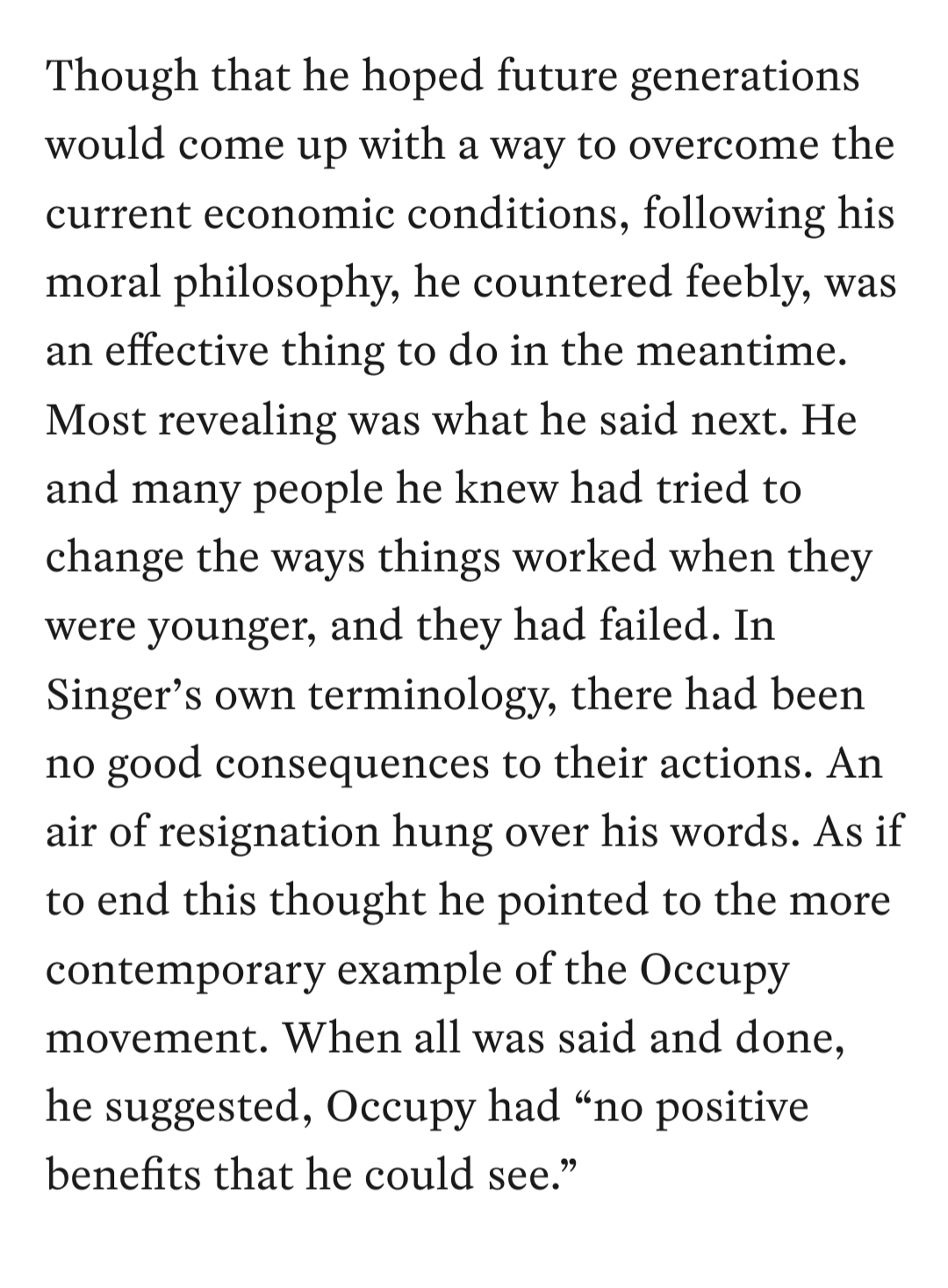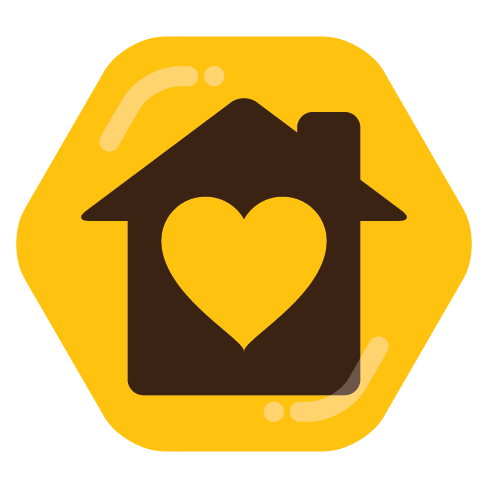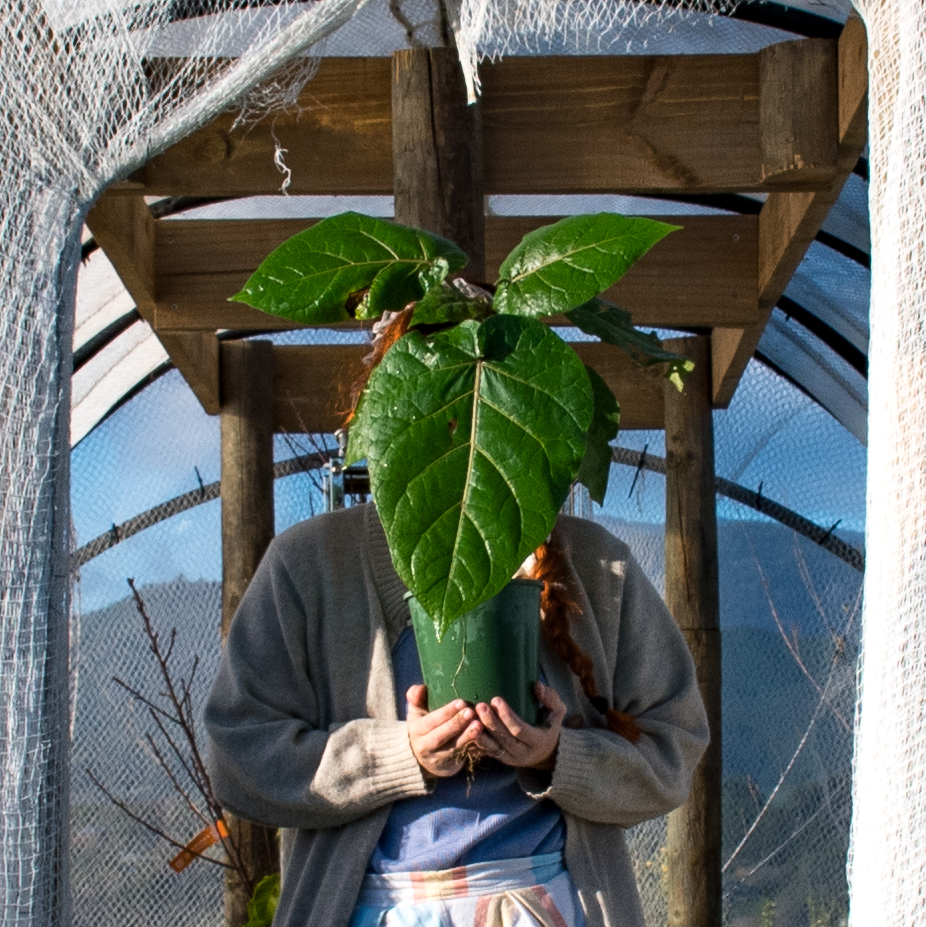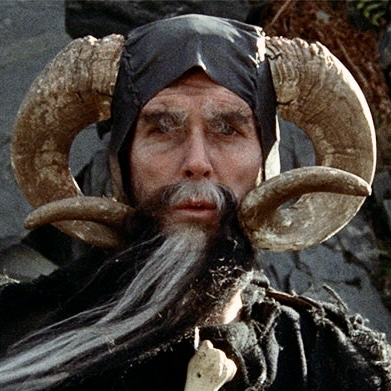I think I’m having a bit of an autistic burnout moment over politics. I’m moving a lot more left over the years but just don’t feel like I can do anything. I have 2 years left on a work contract and it would be killer to lose that job, but also I want to help people in ways where quitting might be the best option. I want to learn about politics and history more, but I also don’t want to stress about it because I don’t feel like it changes things that much. Id like a community that talks about these feelings and I feel like this should be that community for me. Let’s just chat about it.
The feeling comes and goes for me. Sometimes (often, tbh) it feels completely hopeless. But focusing only on the bad and not being able to find the good, or to let go of the despair, leads to burnout - as you already know - and burnout is where you can, unfortunately, get the least done.
I’m not really good at knowing how to get out of burnout. My whole life is really immersed in “the bad news”, so it’s hard to not be around it. I do think there’s a lot of value in finding good news outlets (like Reasons to Be Cheerful or Grist’s Beacon newsletter) and, contrary to how it may feel or what people might say, it is healthy to disconnect from the bad news sometimes. You have to put on your own lifejacket before helping anyone else. Do the things that make you happy and don’t read the news or look at your phone, if you can.
As for doing things - it’s helpful to pick an area of focus. What are you most passionate about? What’s the most pressing issus to you? That’s where you should put your energy, as much as you’re able. That could mean volunteering, doing research and contacting your representatives, spreading the word about the issues, or finding little ways you can make a difference. My issue is environmentalism, which means that I try to focus on my individual actions as a form of self-care - buying less, buying secondhand, reducing food waste, composting food scraps, contacting my reps, spreading the word. Find your little things that you can affect; those are the ones you can look at and be proud of, and let that heal you.
I feel this. When I start looking at the whole political climate I get very distressed, angry, and hopeless but I’ve found focusing on the small and my own local community has really helped. I can’t change what policies are happening in other regions but I can try to make positive changes in mine. I can see what gaps our community has and try to fill them. When you set your eyes too high you can miss some important steps you need to take to get where you’re trying to go.
With the alt-right push to get involved in school boards and local councils, now is THE time to get involved and push back. Real changes start small. Get involved in the established community groups that interest you, start your own if you have something particular your community needs, and learn local politics as its will be much more applicable and just much less to learn than remembering everything happening all at once on a national level.
Burnout is real. When I’m feeling good, i organise the things i want to do into checklists with big and small projects so when the burnout comes for me i can find a few boxes I have the energy to tick. (Things like picking up rubbish at the park, side of the road, baking something for a neighbour) Ticking them off and feeling like I’ve done something positive really helps light the fire again.
You can only do what you can do. Starting really small and building up your involvement is the best way to starve off burnout.
I’ve found focusing on the small and my own local community has really helped
Exactly this. As an anarchist, I’m all about small communities and local involvement. Look for the ways in which you can meaningfully contribute something. Even something as simple as a conversation with a single person to help educate them in a skill you have - that’s an actual, tangible good you did for the world. The more you plug yourself in, and look for opportunities to give back, the more you’ll find yourself involved and affecting change.
For example, a few years back my employer decided to launch a bunch of employee resource groups (ERGs). Of the list of ERGs, I saw that they were making both a pride (lgbtq+) and an emerging professionals ERG, so I signed up to be a leader of both. Once we formed, I started interfacing right away on the things that I had personal grievances with - issues like the policy having non-inclusive language or needing improvement, opportunity to expand healthcare to be more lgbtq+ friendly and cover more health conditions, opportunity to expand fertility, legal, adoption, mental health and other available services, improving mentorship opportunities, improving employee education, etc. Many of these I had no idea how to do or what to do, so I solicited feedback, got into meetings with people in charge of these aspects, and in general just voiced my opinion. Along the way I was able to expand our transgender healthcare offerings, rewrote a bunch of policy, launched a gigantic t-shirt design contest for pride (20k+ t-shirts each year), expanded fertility/adoption policy, started work on mentorship, hosted a bunch of educational talks (including talking in some of them), set up a number of social groups for people to interface with each other, started talks on degendering bathrooms, and a bunch more. Very little of what I was able to accomplish in this scope was planned at the beginning and I owe most of it to simply deciding I wanted to make the world better and trying to get involved/engaged.
Heaps of good! That’s amazing 👏
One small tip i found helps out. Look at local NPR or radio stations in your area. They often have a lot of reporting on local and state issues!
Yes! Look less at the big and far stuff you can’t change and give more energy to the local where you might be able to make an impact
“All politics is inherently local” is a phrase I have heard around a lot, but honestly now it is starting to make a lot more sense than it did before.
Take a break from the news. You can ease back into it later.
It’s not selfish to put your own mental health first. Even when your work contract is up, you won’t be able to do much if you’re a burned-out wreck.
When I start feeling like that, I pick up my garbage-grabber stick and a bag and stroll through my neighborhood picking up trash.
It’s a small thing, but it’s a physical and immediate thing. It’s almost meditative due to its simplicity.
And random people stopping to thank me is pretty nice, too.
Yeah I 2nd this OP. Do the little immediate things and while you do them you can meditate on what other little things you can work on.
Interconnected points about time and scale:
1 We don’t realize our impact. Over time we can change lives and never know. I could tell many stories about this, but you can inspire people and never know - or change their lives and they’ll never have a chance to thank you. After working in customer service, an important truth of life is easily recognized: people complain more than they say thank you. Besides, people who do good often do it behind the scenes and can’t always see the fruits of their labor.
This can be true of one time meetings or by being a constant light in their lives.
2 The amount of news we intake is literally incomprehensible. I mean this without intending to sound uncaring, but the human mind was not meant to care about billions of people (or me, who has been cursed by caring about all the fucking animals too). We’re animals that evolved in small tribes and then small communities. Caring about all the hurt in my city of a couple million is wild in and of itself, but my state? The country… the world? Are you kidding?? It’s literally impossible. Every being that exists suffers so much - from the roadkill gasping for life on the side of the road to the family trapped underneath rubble in an earthquake across the globe. You’re not responsible for taking on that mental load. It’s an unbearable weight that you were not programmed for. You’re not mad that your calculator can’t drive you to work.
3 Shit spreads in water better than more clean water. Put a little shit in water, it’s fucked. People freak and it gets attention. Add more good to good, nobody gives a shit. This metaphor brings me a lot of clarity.
4 We are too close. Over time things are, in fact, getting better. Many times, many well-meaning (mostly white) liberals push back against me here by trying to downplay historical progress. (Even with overturning Roe - support for a women’s right to choose has never been higher - we’ve just been overrun by Originalist Christofascists.) But to my point, even with how shit everything is now it’s materially better to be a person of color today, for the most part. Schools aren’t segregated (they are, of course still segregated in many cases - GOP has dismantled public education pretty well here), you can get a loan from the bank, run for office, etc. This is NOT trying to say everything is even approaching good or acceptable… but we have to take stock sometimes and recognize things aren’t totally doom and gloom. To make sure I wasn’t being a stupid man, I asked my fiancée if she thought being a woman of color now was better than at most points in history and she laughed, saying “of course, that’s undoubtably undeniable.”
So there ya go. A bunch of anecdotal bs from a sleepy dude.
The amount of news we intake is literally incomprehensible. I mean this without intending to sound uncaring, but the human mind was not meant to care about billions of people…
This is very helpful! Sometimes I get stressed out about not keeping up “enough” with all the local, regional, national, international news…and it’s good to remember that we have access to way more news than our brains can handle sometimes.
3 Shit spreads in water better than more clean water. Put a little shit in water, it’s fucked. People freak and it gets attention. Add more good to good, nobody gives a shit. This metaphor brings me a lot of clarity.
oh yeah. this is a defining feature of the world which goes unremarked: there is a general asymmetry in how often people vocalize good things versus bad things, and in how much attention the former gets over the latter. this is true of the news, of social media, of interpersonal relations, and more. in some ways it just sort of follows from how most of us orient things—if something is good, in how many circumstances would you really need to remark on it? but if something’s bad obviously you would! we should confront bad things!
Makes me think this phenomenon has something to do with how humans have evolved. We are tribal in nature so we tend to perk up in response to negative stimuli, while we tend to relax and become irresponsive in comparison to the opposite.
It seems like a lot of the bad we’re seeing in the world is a result of the human condition butting heads with the conditions we have created as a result of this human condition.
Thank you for your service, sleepy dude! You made many fine points that I’ll use.
This is a really good post, thanks!
I feel you. My job is also preventing me from putting my limited energy into things I think are way more important, and I’m not sure about what to do about that.
With burnout, it’s helped me to focus on the things that have gotten a lot better without denying the things that are absolutely unacceptable. Straddling past successes and present problems helps me deal with stress, because I know the past successes I live within included lots of the little failures, false starts, and periodic feelings of impotence that I’m experiencing now
Learning about the internal lives of anti-oppressive people from the past also helped me because this feeling of burnout is totally normal in people who were successful in winning liberation, throughout history and across various movements
A new thing I’m trying to do is focus on feelings of care/respect for people who are the most precarious more than I focus on the enormity of harmful systems or hostility for people perpetuating the harmful systems. I find I can maintain more energy when I focus on feeling excitement for how someone’s life (and our lives collectively) might improve if I work to end various oppressive influences rather than if I focus on grief/stress about how folks needlessly suffer (though all these feelings are important). Letting all of the feelings exist has been good instead of focusing exclusively on the lack-oriented ones
Have you read or listened to “the life that you can save” - although some of the more… extreme… parts of “effective altruism” can be off putting there is a good part of this book that talks about the huge positive progress that’s already been made in the world and what a big difference we as individuals can personally make to help.
It’s a good counter to the feeling of “what’s the point” and the burn out that comes with feeling helpless what’s going on in the world
There’s something wrong in my heart with charity and EA. I used to be a big EA and charity fan, but these days I see it as lacking a human element. I’m confident I could be completely miserable working at my high paying job, donating almost all of it to charity, and save a million lives on the other side of the world (at least on paper, whether it’s true is another thing), and probably commit suicide somewhere down the road completely unfulfilled. Or I could work in my local community and probably do “less” but find community, see my impact, be at peace, be effective politically, and protect people in my life. EA is just too robotic.
Note we need charity, but actually I wonder if mutual aide groups aren’t better. They build teams that can actually permanently affect each others lives.
Hey OP, I haven’t made my way through the whole thread yet so this may have been brought up already. But look into mutual aid, it’s essentially grassroots charity. That might be more of what you’re looking for and it’s good praxis imo
But how do you find mutual aid groups in your area? I find it difficult, esoecially in my area.
obviously don’t self-dox if you’re not comfortable, but: the most immediate group you might find for this purpose is probably going to be a Food Not Bombs chapter. if you’re american and don’t mind it being openly politically-oriented work you might also find such functions attached to a Democratic Socialists of America chapter—quite a few of them do mutual aid.
I think its a question of what your goals are. If its helping people then EA is the most efficient way. If its finding satisfaction in a more hands on way of helping together with a group then that would mean sacrificing (likely in a significant way) some of your potential, but you shouldnt feel bad about that, even this way you would help a lot more than the average person (or what is in my opinion a responsibility for everyone, namely being nice and helpful for your immediate circle of friends, family, etc.). If you choose the former, there are still other ways of finding that human element elsewhere than charity.
I don’t have the answers here, but it’s quite an assumption to say that EA is most efficient and following another method would be “sacrificing” potential. EA has some major glaring flaws.
I might be ignorant on this, but i would assume that EA is most efficient/effective by definition ( Effective altruism is a philosophical and social movement that advocates “using evidence and reason to figure out how to benefit others as much as possible, and taking action on that basis” ). Of course how some may implement it is an other question. What flaws are you thinking of?
There’s a portion of the EA movement that uses their beliefs to justify whatever it takes to make as much money as possible so they can donate more. SBF was in this camp, for example.
It’s modern-day secular indulgences for a lot of people – it doesn’t matter how much harm you’ve really done, so long as you are effectively helping people.
There is also a lot of issue with how they figure out what’s most effective.
I guess it could be used that way, but moral licensing can occur with any form of good deed. For the average person EA wont mean that they will use slave labor in their oil rigs to make money for feeding children in Africa, just that their limited resources can still make a significant difference. I agree however that its sometimes hard to figure out whats most effective ( although we can make educated estimations ).
Yeah, I realize that these are extremes of it, but when the faces of the movement are overwhelmingly awful people, it’s a problem.
-
It’s based/relies on utilitarianism for its moral framework, and I’m just decidedly not a utilitarian. I consider relationships, rights, and motives to matter when judging something.
-
The whole “earn to give” thing is just a disastrous concept, most publicly in giving cover to things like FTX.
-
It lacks any theory of power or overall social or economic change. Singer on this issue:

I agree. I built my life around earn to give. It just leaves the giver morally empty and supporting a capitalist system, and the receiver dependent on charity. A hundred thousand people receiving malaria vaccines (or whatever) is immensely powerful, but they still live in a country that didn’t apparently want to give malaria vaccines to its citizens? What will happen to them now? It does nothing to solve the problem. And I can’t really know because I live across the world. Local action is the best way. Even if it’s not “cost effective” you can identify problems that affect real people right next door, and both of you will benefit from that, and make a friend.
I think utilitarianism is too diverse to just put EA in that box and therefore say its bad. I agree that it could be used as a cover, but for most people it just means finding the best way to help with their limited resources. I agree that it probably wont make systematic changes, but that requires a level of capital that is unavailable for the average person anyway, who can probably make a more significant change in this regard using their voice and vote, while directing their modest resources to where it can already make significant improvement.
-
Here’s a really interesting video by Philosophy Tube about Effective Altruism. It digs into the assumptions behind EA, the way good intentions can lead to great consequences (a different type of effect of altruism - whoops), how those at the forefront of the movement themselves are not quite as altruistic or effective at giving away their money as they claim, criticisms of the philosophies themselves, just a whole lot of really good food for thought.
I can’t tell you what will work for you but I can share what works for me when I’m overwhelmed and mad at the world for all the things I see are going wrong. Accept that the only thing you truly have the power to change is yourself. Expecting other people to change is just setting yourself up for disappointment, resentment, and giving up. Focus on you and the things that make you happy and help you feel like you’re accomplishing something, even if it’s small. Try to spend less time trying to do the things you think other people are expecting of you and more time on getting to know yourself and what is important to you.
All I can say, your not alone. I know my wife and I struggle with how much to be involved. We were going to pass on this years political process… we are in a caucus state. But in the end we did go and then to two conventions because we felt it was important.
Not saying I have any answers. I find remembering “doing something is better then doing nothing”, meaning things do not have to be perfect. My wife and I are both kind of perfectionists.










